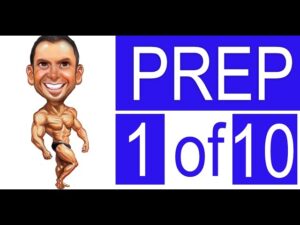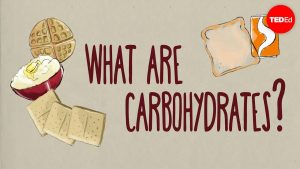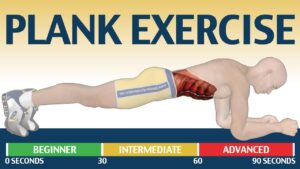Insulin is one of the most common medications that people with type 2 diabetes take… yet, many people feel like getting on insulin means they’ve failed. Learn the basics of why insulin can help control blood sugar, some common misunderstandings about insulin and what you should always have with you if you start insulin. Transcript: Many people with type 2 feel that if they start taking insulin, it’s the sign that their diabetes has gotten really bad and they’re doomed. This couldn’t be further from the truth, but part of the reason that people feel that way is because of how insulin was used in the past. It used to be that insulin was given as a last resort, to people whose diabetes had progressed to the point where complications were either already present or almost inevitable. That’s pretty much the opposite of how insulin should be used. Today, physicians use insulin more proactively, as a way to lower your A1c before it gets too high and therefore PREVENT complications. Insulin is one of the most effective ways to control your blood glucose and is one of only a few medications in the world that is completely natural. You can take insulin that is exactly the same as the insulin that your body produces naturally. This means you don’t have to worry about any allergies or side effects. The only concerns about insulin relate to the dosing of it. If you don’t take enough insulin, your blood glucose levels and your A1c will be too high and if you take too much insulin, your blood glucose may go too low. However, low blood sugar is not very common for people with type 2 diabetes who are starting insulin. A recent study showed that on average, there was one event of hypoglycemia for every ten years that someone was on insulin. Working with your physician and learning how to adjust your own insulin doses will prevent most of these problems, but you should always carry some fast-acting glucose (like glucose tablets or sweet tarts) with you at all times if you’re on insulin, just in case you go low. Another concern that people have is about taking an insulin ‘shot’. This is an area that has changed a lot over the last decade, as there are now new ways to take insulin, such as insulin pens. Taking insulin in today’s world should not be associated with any discomfort. Last, some people may be concerned that being on insulin will make them gain weight. The data on this is pretty clear—on average, people on insulin will gain roughly 3.5 pounds over 6 years. This is a relatively small amount of weight over a fairly long period of time, and in terms of your diabetes health, the better blood sugar control is well worth it. And that’s what you need to know about insulin—thanks for watching! The medical information in our videos is provided as an information resource only. It is not to be used or relied on for any diagnostic or treatment purposes. These videos do not create any patient-physician relationship, and should not be used as a substitute for professional medical advice, diagnosis and treatment. Always seek the advice of your physician or other qualified health provider for any questions you may have regarding a medical condition. DWTK does not endorse any specific test, treatment, medication or procedure mentioned in these videos. For more information sign up for our free email program: https://diabeteswhattoknow.com/sign-up/ All content of this YouTube channel is owned by What To Know, LLC. and is protected by worldwide copyright laws. You may download content only for your personal use (i.e., for non-commercial purposes) but no modification or further reproduction of the content is permitted. The content may otherwise not be copied or used in any way. ©2020 Diabetes What to Know

Type 2 Diabetes Treatments: Insulin
- Post author:
- Post published:May 26, 2021
- Post comments:0 Comments
You Might Also Like

Law 9: Hydrate | 10 Laws Of Muscle-Building

vídeo orlistat

D.1 Methods of drug administration (SL)

Neuro-Linguistic Programming Video – 2

Circulatory System Heart BP And Asanas Video – 3

What to Eat before Bed to Build Muscle | Bodybuilding Diet

Vitamins & Minerals: Dietary Intake Definitions

6 Likely Symptoms Of Vitamin B Overdose

Turmeric Nutrition Video – 1

Clinical Psychology Video – 1

What makes tuberculosis (TB) the world’s most infectious killer? – Melvin Sanicas

Pediatric Physiotherapy Video – 9

Omega 3 Side Effects | Do Not Take Fish Oil Until You Watch This

What is liver fibrosis?

ON amino tablets unboxing from spoter.com

What is Human Growth Hormone?

Hanging Leg Twist – HASfit Abdominal Exercises – Ab Exercises – Abs Exercise

What is Aerobic Exercise- Cardio and aerobics workouts

What is a normal kidney function ?

LEGS : LEG CURLS

№ ❷ Thyroid Hormones and The Heart

Preparation for a BodyBuilding Competition – 20 WEEKS OUT! World Champion Explains

How to apply Regaine (Minoxidil) : Stepwise guide. (Low Res)

How do carbohydrates impact your health? – Richard J. Wood

Front Raises supersetted w/ Lateral Raises

Foods That Reduce High Blood Pressure

Why Can the Same Drug Treat Heart Attacks and Anxiety?

What Type of B12 Is Best?

What Are the Stages of Liver Damage? Fatty Liver|Hepatitis|Fibrosis|Cirrhosis

TOP 5 WORST EXERCISES (Stop Doing These!!)

Human Body, Body Building Muscle Building Anatomy Physiology Video – 14

Stability Ball Lower Back Exercises

do i really need alli? why not just diet and exercise?

Plank- 1

Vomiting Home Remedies – Instant Relief

Why Fast Food & Soda Are Bad for Heart | Heart Disease

THE best preworkout and postworkout meals preparation

Urine Formation

Low Sperm Count: Symptoms, Causes, Diagnosis and Treatment

HGH, Growth Hormones & Plant Hormones Video – 28

Life at Endurance: Our Culture

